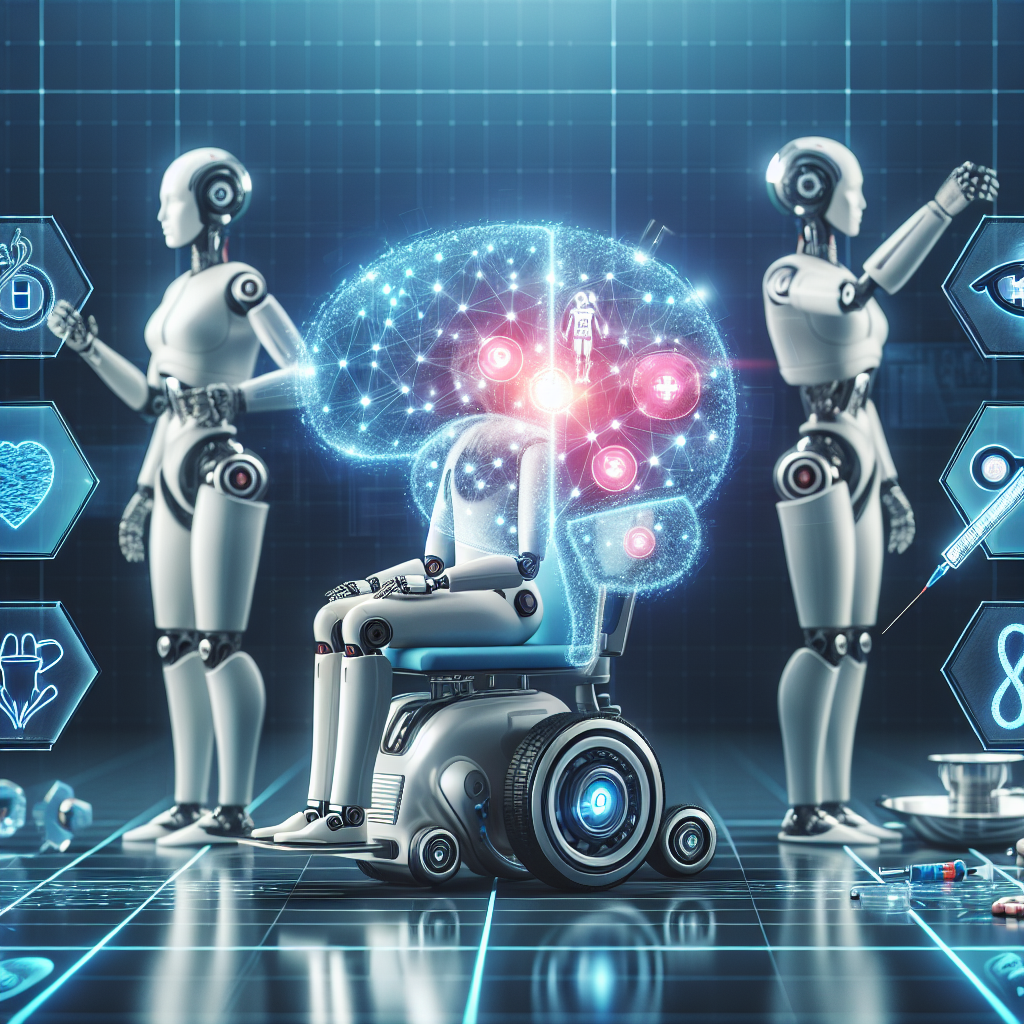Artificial General Intelligence (AGI) is a term used to describe machines that possess human-like cognitive abilities, allowing them to perform a wide range of tasks that typically require human intelligence. In recent years, AGI has been making significant strides in various industries, including healthcare. Intelligent machines are revolutionizing the way healthcare is delivered, from diagnosing diseases to personalizing treatment plans. In this article, we will explore the impact of AGI in healthcare and how it is transforming medicine as we know it.
The Role of AGI in Healthcare
AGI is being used in healthcare to improve patient outcomes, increase efficiency, and reduce costs. Intelligent machines can analyze vast amounts of data quickly and accurately, leading to more accurate diagnoses and treatment plans. For example, AGI can analyze medical images to detect early signs of diseases such as cancer, potentially saving lives by enabling early intervention.
In addition to diagnosing diseases, AGI can also help personalize treatment plans for individual patients. By analyzing a patient’s genetic makeup, medical history, and lifestyle factors, intelligent machines can recommend the most effective treatment options for each patient. This personalized approach to healthcare can lead to better outcomes and reduce the risk of adverse reactions to medications.
AGI is also being used to improve the efficiency of healthcare systems. Intelligent machines can automate routine tasks, such as scheduling appointments and processing insurance claims, freeing up healthcare professionals to focus on more complex and critical tasks. This can help reduce wait times for patients and improve overall patient satisfaction.
Furthermore, AGI can help healthcare providers make more informed decisions by analyzing large datasets to identify trends and patterns. For example, intelligent machines can analyze electronic health records to identify patients at high risk of developing certain conditions and recommend preventive measures to reduce the risk.
Overall, AGI has the potential to revolutionize healthcare by improving patient outcomes, increasing efficiency, and reducing costs. As the technology continues to advance, we can expect to see even more applications of AGI in healthcare in the future.
FAQs
Q: What are some examples of how AGI is being used in healthcare?
A: AGI is being used in healthcare to diagnose diseases, personalize treatment plans, improve the efficiency of healthcare systems, and help healthcare providers make more informed decisions.
Q: How does AGI analyze medical images to detect diseases?
A: AGI uses advanced algorithms to analyze medical images, such as X-rays and MRIs, to detect early signs of diseases. By comparing the images to a database of known patterns and abnormalities, intelligent machines can identify potential issues that may not be visible to the human eye.
Q: Can AGI help reduce wait times for patients?
A: Yes, AGI can help reduce wait times for patients by automating routine tasks, such as scheduling appointments and processing insurance claims. By streamlining administrative processes, healthcare providers can focus more on patient care, leading to shorter wait times and improved patient satisfaction.
Q: How is AGI improving the efficiency of healthcare systems?
A: AGI is improving the efficiency of healthcare systems by automating routine tasks, analyzing large datasets to identify trends and patterns, and recommending preventive measures to reduce the risk of developing certain conditions. By leveraging intelligent machines, healthcare providers can better allocate resources and improve overall system efficiency.
Q: What are the potential benefits of using AGI in healthcare?
A: The potential benefits of using AGI in healthcare include improved patient outcomes, increased efficiency, reduced costs, personalized treatment plans, and more informed decision-making. By harnessing the power of intelligent machines, healthcare providers can deliver better care to patients and improve overall healthcare delivery.
In conclusion, AGI is transforming healthcare by improving patient outcomes, increasing efficiency, and reducing costs. Intelligent machines are revolutionizing the way healthcare is delivered, from diagnosing diseases to personalizing treatment plans. As the technology continues to advance, we can expect to see even more applications of AGI in healthcare in the future.

